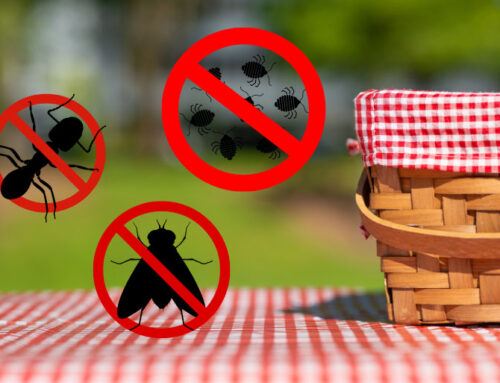Welcome to the sun-drenched days of summer in Iowa City, IA—where you’re likely planning your next riverside picnic or gearing up for the season’s festivals. It’s also the time when summer bugs like mosquitoes, ticks, and ants start to crowd your space. Keeping these pests at bay is essential to enjoy your summer without itchy distractions.
In this guide, we’ll share straightforward and practical methods for summer pest control, ensuring these common nuisances don’t spoil your season. From preventative measures to immediate solutions, you’ll learn how to keep your surroundings pest-free, ensuring you make the most out of Iowa City’s beautiful summer.
Common Summer Pests and Their Risks
As you make the most of Iowa City’s vibrant summer scene, staying ahead of common pests is crucial. Beyond the nuisances of mosquitoes, ticks, and ants, it’s important to understand the health risks they pose. These pests can carry diseases that are preventable with the right measures.
In this section, we delve into targeted strategies that not only repel these unwanted guests but also safeguard your health. From using environmentally friendly repellents to setting up barriers and scheduling regular pest inspections, we’ll cover all the essentials to keep your summer activities safe and enjoyable.
MOSQUITOES
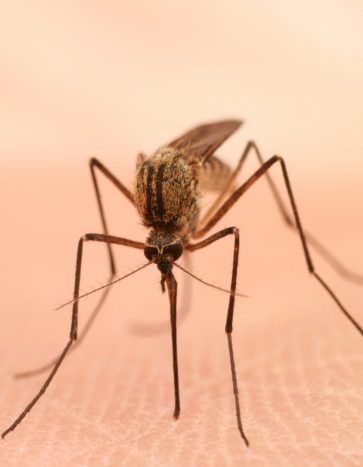
While mosquitoes, a common summer bug, might often be out of sight, they should never be out of mind. Beyond their annoying bites, they pose serious health risks as carriers of diseases like West Nile Virus and Zika Virus. You can drastically reduce their numbers by regularly emptying any water-holding containers such as flowerpot saucers or discarded tires, which serve as ideal breeding sites.
Fortify your home against these pests by fitting all windows and doors with tight mesh screens. When spending time outdoors, wearing light-colored clothing can help deter mosquitoes. Additionally, applying EPA-approved insect repellents that are safe for skin can provide further protection. For added defense, consider placing fans around patio or deck areas; the airflow disrupts mosquitoes’ flight patterns and makes it difficult for them to land.
FLEAS AND TICKS
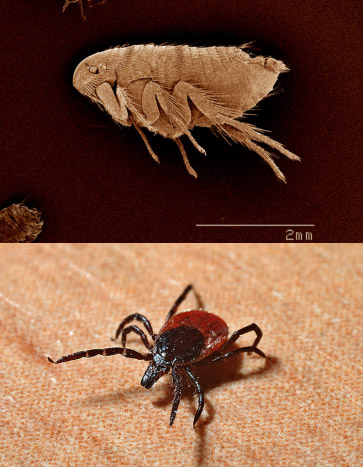
Fleas and ticks are not only a concern for pets but also for anyone who enjoys spending time in green spaces. Regular yard maintenance, such as mowing the lawn and removing excess brush, can greatly reduce their habitats and prevent infestations.
Protect your pets with treatments recommended by a veterinarian, and always check them for ticks after outdoor activities. For broader protection, consider treating your yard with pet-safe insecticides and creating barriers with gravel or wood chips to keep ticks away from areas where you and your pets relax and play.
STINGING INSECTS (WASPS, BEES, ETC.)
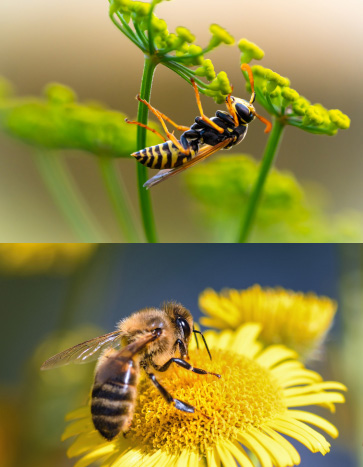
While bees and wasps are essential for pollination and maintaining ecological balance, their presence can become problematic when nests are established close to human activity areas. If you discover a nest at your residence, proceed with caution. It’s wise to avoid disturbing the nest during daytime hours, as this is when these insects are most active.
Should the nest be situated away from common gathering areas, consider leaving it intact to aid their role in nature. Yet, if the nest poses a real threat, particularly to those with allergies to stings, enlisting the help of professional pest control experts for its safe removal or relocation is advisable. To deter these stinging insects, also ensure that no food waste or sugary drinks are left in exposed places.
TERMITES
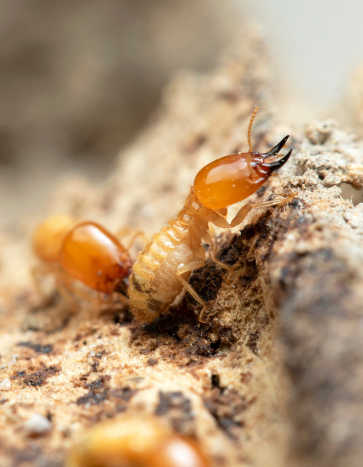
Termites are silent but highly destructive pests that can cause significant damage before they’re even detected. Stay vigilant for signs of termite activity, such as hollow-sounding wood, visible mud trails on walls, or the presence of swarmers—winged termites looking to establish new colonies. These signs are critical indicators of a termite issue.
Protect your property by removing wood piles and debris from around your home’s perimeter and keeping the foundation area dry, as termites are drawn to moisture. Should you spot any of these warning signs, promptly contact a certified pest control professional. Early intervention is crucial to prevent costly repairs and secure your home against further termite damage.
FLIES
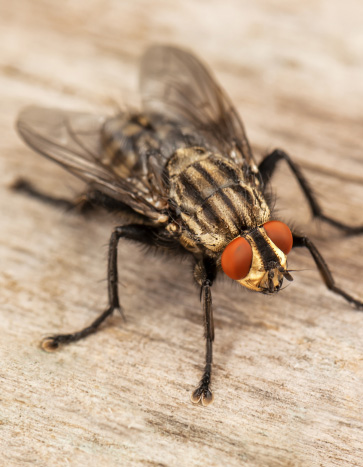
Despite their small size, flies pose significant health risks as they can spread a variety of diseases. Keeping your environment clean is key to managing fly populations effectively. Regularly dispose of garbage and make sure trash bins have tight-fitting lids to prevent flies from breeding. Adding screens to windows and doors can also block their entry.
For a homemade solution, try creating a fly trap with sugar water mixed with dish soap in a jar, covered by plastic wrap pierced with small holes. This trap will attract and capture flies. Additionally, planting herbs like basil and mint near entryways can deter flies, thanks to their natural repellent properties, keeping your indoor spaces fly-free.
ANTS
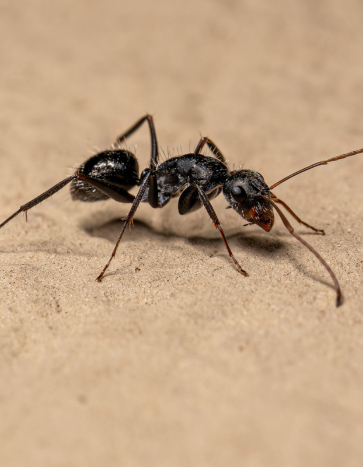
Ants can quickly become an overwhelming presence in and around your home, especially during the warmer months. It’s crucial to monitor for signs of an ant infestation, such as visible trails, nests in the ground, or around your property’s structure. Common areas to watch include kitchens and other places where food is stored.
Prevent ant invasions by keeping your kitchen clean, sealing food in airtight containers, and eliminating standing water around your home. If ant pathways are already established, consider natural deterrents like vinegar or essential oils, or consult a pest control professional for more persistent problems.
Preventive Measures to Protect Your Home
With the arrival of warmer weather, securing your home against pests becomes essential to ensure an enjoyable summer, both inside and out. We’ve curated a mix of both traditional and innovative pest control strategies designed to maintain your comfort and keep your spaces pest-free.
Below, you’ll find practical and effective measures that you can start implementing today to safeguard your home. These strategies are straightforward, ensuring that your summer experiences are as pleasant as they are pest-free.
Optimizing Your Home’s Defense Against Pests:
Innovative Natural Deterrents:
Chemical Strategies with Caution:
Preventive Tips for Uncommon Pests:
Integrating these savvy and sometimes overlooked strategies not only helps keep your home pest-free but also ensures it’s done safely and sustainably. Adopting these approaches means your home remains a haven, free from the intrusion of summer pests, while balancing innovation with environmental care.
Managing Pests in Your Yard
As we focus on creating a pest-resistant environment, our attention shifts to the yard—your first line of defense against seasonal pests. Maintaining a well-groomed yard is key not only for its aesthetic value but also for significantly lowering the risk of pest invasions.
Why Effective Landscaping Matters:
A well-maintained yard serves as the primary defense against pests, preventing them from becoming an indoor problem. Here’s how to make your outdoor spaces as unwelcoming to pests as your interior:
Tailored Tips for a Pest-Free Yard:
Implementing these tailored strategies enhances your yard’s beauty while strengthening its defenses against pests. Consistent application of these tips ensures your outdoor area remains a pleasant and healthy environment throughout the year.
Pet Safety During Summer
As we take steps to protect our homes and gardens from pests, it’s equally important to ensure our pets are safe during the warm summer months. Here are some effective strategies to shield your beloved animals from fleas, ticks, and other pests.
Key Tips for Protecting Your Pets:
By implementing these straightforward measures, you can significantly enhance your pets’ quality of life during the summer. Just as we enjoy the sunny days, our pets deserve to experience the joys of summer without the nuisance of pests. With proactive care, your pets can safely enjoy every beautiful day right alongside you.
When to Call a Professional
While managing pests is often a do-it-yourself endeavor, there are instances where the expertise of a professional pest control service is indispensable. Recognizing the right time to escalate your pest control efforts to a professional can save you both time and stress, and prevent minor issues from becoming severe infestations.
Key Signs You Need Professional Pest Control:
What to Expect from Pest Control Services:
Understanding this process highlights the effectiveness of professional pest control services in addressing pest issues comprehensively. With expert knowledge and meticulous execution, services like those provided by Bobcat Wildlife & Pest Management play a crucial role in keeping your living space secure and comfortable.
DIY vs. Professional Pest Control
Identifying the most effective pest control method is essential for keeping your home tranquil and free of pests throughout the summer. This guide evaluates the strengths and limitations of both DIY techniques and professional services, guiding you to choose the strategy that best complements your lifestyle and meets your pest control requirements.
DIY Pest Control:
Pros:
Cons:
Professional Pest Control:
Pros:
Cons:
For minor pest concerns, a DIY approach might be adequate, providing a fast and economical solution. However, in cases of severe or stubborn infestations, enlisting professional services can offer a reliable and hassle-free way to thoroughly eliminate pests.
When choosing between DIY and professional pest control, evaluate the intensity of your pest issue, your capability to handle it yourself, and whether the lasting benefits of expert help outweigh the initial costs. This deliberate consideration will assist you in selecting the most suitable pest management strategy for your home.
Take Action to Protect Your Home and Health
Pest control is more than just a routine maintenance task—it’s an essential measure for protecting both your well-being and the structure of your home, especially during the summer when pests are most prevalent. Whether opting for DIY methods or professional services, taking prompt action is crucial.
Are you facing ongoing or severe pest issues in Iowa City, IA, or the surrounding areas? Don’t let these problems worsen. Reach out to Bobcat Wildlife & Pest Control. Our team of experts is ready to provide quick, effective, and safe pest control solutions tailored to your specific needs. We are committed to ensuring your home remains a serene sanctuary, free from the disruptions of summer pests.
Don’t wait to make your home a safer place! Contact us today to secure a peaceful and protected environment for your family right here in Iowa City, IA.
About the Author
Derek Brownmiller, Area Manager at Bobcat Wildlife & Pest Management, leads with 16+ years in wildlife and pest control. Licensed and experienced, his Iowa City-based team excels in comprehensive, customer-focused solutions. Their mission: superior service in Iowa City and beyond, ensuring homes are safe from wildlife and pests.

